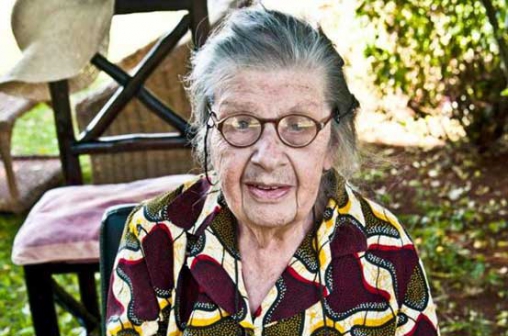
A literary elder has gone to join her peers in the land from which no one returns. Nyarloka has exited the stage but has left us wealthier with the stock of her words carefully crafted and packaged in her numerous literary works. Marjorie Oludhe Macgoye has left us at a time when, in the words of the persona in her poem, Make it Sing,
“Poverty cries in spasms, empty bellies drum/ their needs in swelling song. The rib-cage creaks, / sympathy gnaws at the flesh, flood waters pound/ rhythmically at the land till the pulse screeches/ high with the horror of it”.